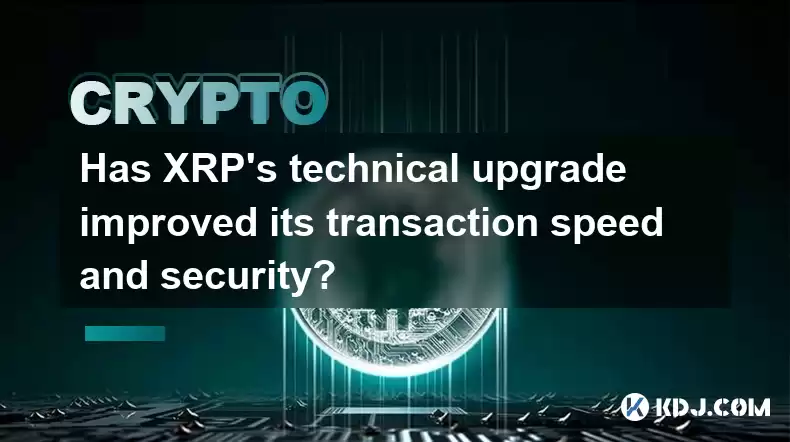-
 Bitcoin
Bitcoin $120200
1.20% -
 Ethereum
Ethereum $4612
9.01% -
 XRP
XRP $3.274
4.27% -
 Tether USDt
Tether USDt $0.9999
-0.02% -
 BNB
BNB $835.0
3.28% -
 Solana
Solana $192.6
10.00% -
 USDC
USDC $0.9998
0.00% -
 Dogecoin
Dogecoin $0.2362
5.94% -
 TRON
TRON $0.3522
1.87% -
 Cardano
Cardano $0.8418
8.70% -
 Chainlink
Chainlink $23.47
10.76% -
 Hyperliquid
Hyperliquid $45.03
4.26% -
 Stellar
Stellar $0.4503
4.40% -
 Sui
Sui $3.887
6.24% -
 Bitcoin Cash
Bitcoin Cash $618.8
6.66% -
 Hedera
Hedera $0.2609
5.53% -
 Ethena USDe
Ethena USDe $1.000
-0.02% -
 Avalanche
Avalanche $24.68
7.86% -
 Litecoin
Litecoin $130.9
8.67% -
 Toncoin
Toncoin $3.505
3.79% -
 UNUS SED LEO
UNUS SED LEO $9.117
1.48% -
 Shiba Inu
Shiba Inu $0.00001356
4.56% -
 Uniswap
Uniswap $11.59
4.75% -
 Polkadot
Polkadot $4.149
7.26% -
 Dai
Dai $0.9998
-0.04% -
 Cronos
Cronos $0.1646
-1.10% -
 Ethena
Ethena $0.8028
0.57% -
 Pepe
Pepe $0.00001218
8.33% -
 Bitget Token
Bitget Token $4.466
1.62% -
 Aave
Aave $322.4
9.58%
Has XRP's technical upgrade improved its transaction speed and security?
XRP Ledger's upgrades aim to boost transaction speed and security, but the extent of improvement is debated. Independent verification of performance data and security audits are crucial for objective evaluation.
Mar 06, 2025 at 01:19 pm

Key Points:
- XRP Ledger's technical upgrades have focused on enhancing transaction speed and security, though the extent of improvement is a subject of ongoing discussion within the crypto community.
- Specific upgrades like improved consensus mechanisms and network optimization have aimed to address scalability issues and bolster security against attacks.
- The impact of these upgrades on actual transaction speed and security is complex, depending on network congestion and other external factors. Claims of significant improvements require careful scrutiny and independent verification.
- Measuring improvements necessitates a comparative analysis of transaction speeds and security incidents before and after the upgrades.
Has XRP's technical upgrade improved its transaction speed and security?
The question of whether XRP's technical upgrades have demonstrably improved its transaction speed and security is a nuanced one, sparking ongoing debate within the cryptocurrency community. While Ripple, the company behind XRP, has consistently highlighted various enhancements to the XRP Ledger (XRPL), the real-world impact remains a subject of ongoing analysis and discussion.
One key area of focus has been enhancing the XRPL's consensus mechanism. The XRPL utilizes a unique consensus mechanism, distinct from Proof-of-Work or Proof-of-Stake, aiming for faster transaction finality and improved efficiency. Upgrades have targeted refining this mechanism to optimize its performance under various network loads. However, quantifying the exact improvement in transaction speed requires rigorous benchmarking and analysis, taking into account varying network conditions.
Further upgrades have centered on network optimization strategies. These efforts aim to minimize latency and improve throughput, thus leading to faster transaction processing. This includes improvements to the underlying infrastructure, network protocols, and data handling processes. Again, the degree of success depends on factors beyond the direct control of the upgrades themselves, such as overall network congestion and the types of transactions being processed.
Security improvements have also been a primary focus of XRPL upgrades. These upgrades aim to enhance the ledger's resilience against various attacks, including double-spending attempts and denial-of-service attacks. Strengthened cryptographic algorithms and improved validation processes are examples of these security enhancements. The effectiveness of these measures is usually evaluated through security audits and by monitoring the occurrence of successful attacks. A lack of significant security breaches post-upgrade could be interpreted as a positive outcome, but this isn't definitive proof of enhanced security.
Analyzing transaction speeds requires a methodical approach. One must compare transaction processing times before and after the implementation of specific upgrades. This involves collecting data on transaction completion times under various network conditions, ideally from multiple independent sources. Such an analysis should consider peak times versus off-peak periods to provide a comprehensive picture of the impact of the upgrades.
Similarly, assessing security improvements necessitates a thorough examination of historical data. Tracking the number and types of security incidents before and after upgrades provides valuable insights. However, a lack of attacks doesn't automatically imply superior security. A sophisticated attacker might find different vulnerabilities or choose to target other aspects of the system. Therefore, ongoing security audits and vulnerability assessments are essential for comprehensive security evaluation.
Furthermore, the scalability of the XRP Ledger is a crucial aspect influencing both transaction speed and security. As the number of users and transactions grows, the ability of the network to handle increased load becomes paramount. Upgrades aimed at improving scalability directly affect transaction speed by preventing congestion and delays. Improved scalability can indirectly enhance security by reducing the potential for attacks that exploit network vulnerabilities arising from congestion.
The nature of cryptocurrency networks introduces inherent complexities in evaluating upgrades. Factors like network congestion, the type of transactions, and the overall health of the network can significantly influence transaction speeds and security. These external factors make it challenging to isolate the direct impact of specific upgrades on performance metrics.
It's important to note that claims of significant improvements in transaction speed and security should be viewed critically. Independent verification of performance data and security assessments is crucial before drawing definitive conclusions. While Ripple highlights various upgrades and improvements, a comprehensive and objective evaluation requires rigorous testing and analysis by independent experts within the cryptocurrency community.
Independent analysis of transaction speeds often involves comparing the average transaction confirmation times before and after the implementation of upgrades. This comparison should consider the variability in transaction times, accounting for network congestion and other factors that might influence the results. The analysis should also take into account the type of transactions being processed, as different transaction types may have different processing times.
Similarly, independent analysis of security improvements should consider factors such as the number and severity of security incidents, the effectiveness of security protocols, and the overall resilience of the network against various attacks. Such an analysis may involve reviewing security audits and vulnerability assessments conducted by independent third-party organizations.
The debate surrounding the effectiveness of XRP's technical upgrades is ongoing and requires continued scrutiny. The inherent complexities of blockchain technology and the influence of external factors make it difficult to definitively quantify the improvements. While Ripple highlights advancements, a complete picture necessitates independent validation and ongoing monitoring of the network's performance.
Frequently Asked Questions:
Q: How can I verify the claimed improvements in XRP's transaction speed?
A: You can independently verify claims by accessing publicly available data on transaction times from multiple sources, comparing average confirmation times before and after upgrades, and considering factors like network congestion. Look for reports from independent blockchain analytics firms.
Q: What specific security upgrades have been implemented in the XRP Ledger?
A: Ripple hasn't publicly detailed every security upgrade. However, improvements to cryptographic algorithms, enhanced validation processes, and infrastructure upgrades aimed at enhancing resilience against attacks are generally cited. Look for information released by Ripple and independent security audits.
Q: Are there any publicly available benchmarks comparing XRP's transaction speed before and after the upgrades?
A: While Ripple may publish some data, finding truly independent and comprehensive benchmarks can be challenging. Searching for reports from reputable blockchain analytics firms or academic studies focusing on XRPL performance is recommended.
Q: How does XRP's transaction speed compare to other cryptocurrencies?
A: Direct comparisons are difficult due to variations in network conditions and transaction types. However, you can find performance comparisons on various cryptocurrency analytics websites which provide benchmarks and allow you to compare XRP with other cryptocurrencies. Remember to consider the methodology used in these comparisons.
Q: Has the XRP Ledger experienced any major security breaches since the upgrades?
A: Publicly reported major security breaches are relatively rare for established cryptocurrencies, including XRP. The absence of significant reported breaches doesn't guarantee perfect security, though. Continuous monitoring and independent security audits are crucial for ongoing assessment.
Disclaimer:info@kdj.com
The information provided is not trading advice. kdj.com does not assume any responsibility for any investments made based on the information provided in this article. Cryptocurrencies are highly volatile and it is highly recommended that you invest with caution after thorough research!
If you believe that the content used on this website infringes your copyright, please contact us immediately (info@kdj.com) and we will delete it promptly.
- Unich's OTC Exchange: Surging with $1.2B Volume – What's the Hype?
- 2025-08-13 02:50:11
- MoonBull's Explosive Moves: Your Crypto Whitelist Ticket to Ride!
- 2025-08-13 02:30:11
- MAGACOIN Finance: Don't Miss the Presale Bonus!
- 2025-08-13 02:30:11
- Trump's Crypto Kingdom: $2.4 Billion and Counting
- 2025-08-13 02:50:11
- Solana, LSTs, and SEC Approval: A New Dawn for Crypto?
- 2025-08-13 02:55:12
- Bitcoin's Profit Surge: Unpacking the BTC Value Boom
- 2025-08-13 02:55:12
Related knowledge

How to purchase Aragon (ANT)?
Aug 09,2025 at 11:56pm
Understanding Aragon (ANT) and Its PurposeAragon (ANT) is a decentralized governance token that powers the Aragon Network, a platform built on the Eth...

Where to trade Band Protocol (BAND)?
Aug 10,2025 at 11:36pm
Understanding the Role of Private Keys in Cryptocurrency WalletsIn the world of cryptocurrency, a private key is one of the most critical components o...

What is the most secure way to buy Ocean Protocol (OCEAN)?
Aug 10,2025 at 01:01pm
Understanding Ocean Protocol (OCEAN) and Its EcosystemOcean Protocol (OCEAN) is a decentralized data exchange platform built on blockchain technology,...

How to invest in Kyber Network Crystal v2 (KNC)?
Aug 12,2025 at 05:21pm
Understanding Kyber Network Crystal v2 (KNC)Kyber Network is a decentralized liquidity hub built on the Ethereum blockchain that enables instant token...

Where can I buy UMA (UMA)?
Aug 07,2025 at 06:42pm
Understanding UMA and Its Role in Decentralized FinanceUMA (Universal Market Access) is an Ethereum-based decentralized finance (DeFi) protocol design...

What exchanges offer Gnosis (GNO)?
Aug 12,2025 at 12:42pm
Overview of Gnosis (GNO) and Its Role in the Crypto EcosystemGnosis (GNO) is a decentralized prediction market platform built on the Ethereum blockcha...

How to purchase Aragon (ANT)?
Aug 09,2025 at 11:56pm
Understanding Aragon (ANT) and Its PurposeAragon (ANT) is a decentralized governance token that powers the Aragon Network, a platform built on the Eth...

Where to trade Band Protocol (BAND)?
Aug 10,2025 at 11:36pm
Understanding the Role of Private Keys in Cryptocurrency WalletsIn the world of cryptocurrency, a private key is one of the most critical components o...

What is the most secure way to buy Ocean Protocol (OCEAN)?
Aug 10,2025 at 01:01pm
Understanding Ocean Protocol (OCEAN) and Its EcosystemOcean Protocol (OCEAN) is a decentralized data exchange platform built on blockchain technology,...

How to invest in Kyber Network Crystal v2 (KNC)?
Aug 12,2025 at 05:21pm
Understanding Kyber Network Crystal v2 (KNC)Kyber Network is a decentralized liquidity hub built on the Ethereum blockchain that enables instant token...

Where can I buy UMA (UMA)?
Aug 07,2025 at 06:42pm
Understanding UMA and Its Role in Decentralized FinanceUMA (Universal Market Access) is an Ethereum-based decentralized finance (DeFi) protocol design...

What exchanges offer Gnosis (GNO)?
Aug 12,2025 at 12:42pm
Overview of Gnosis (GNO) and Its Role in the Crypto EcosystemGnosis (GNO) is a decentralized prediction market platform built on the Ethereum blockcha...
See all articles

























































































